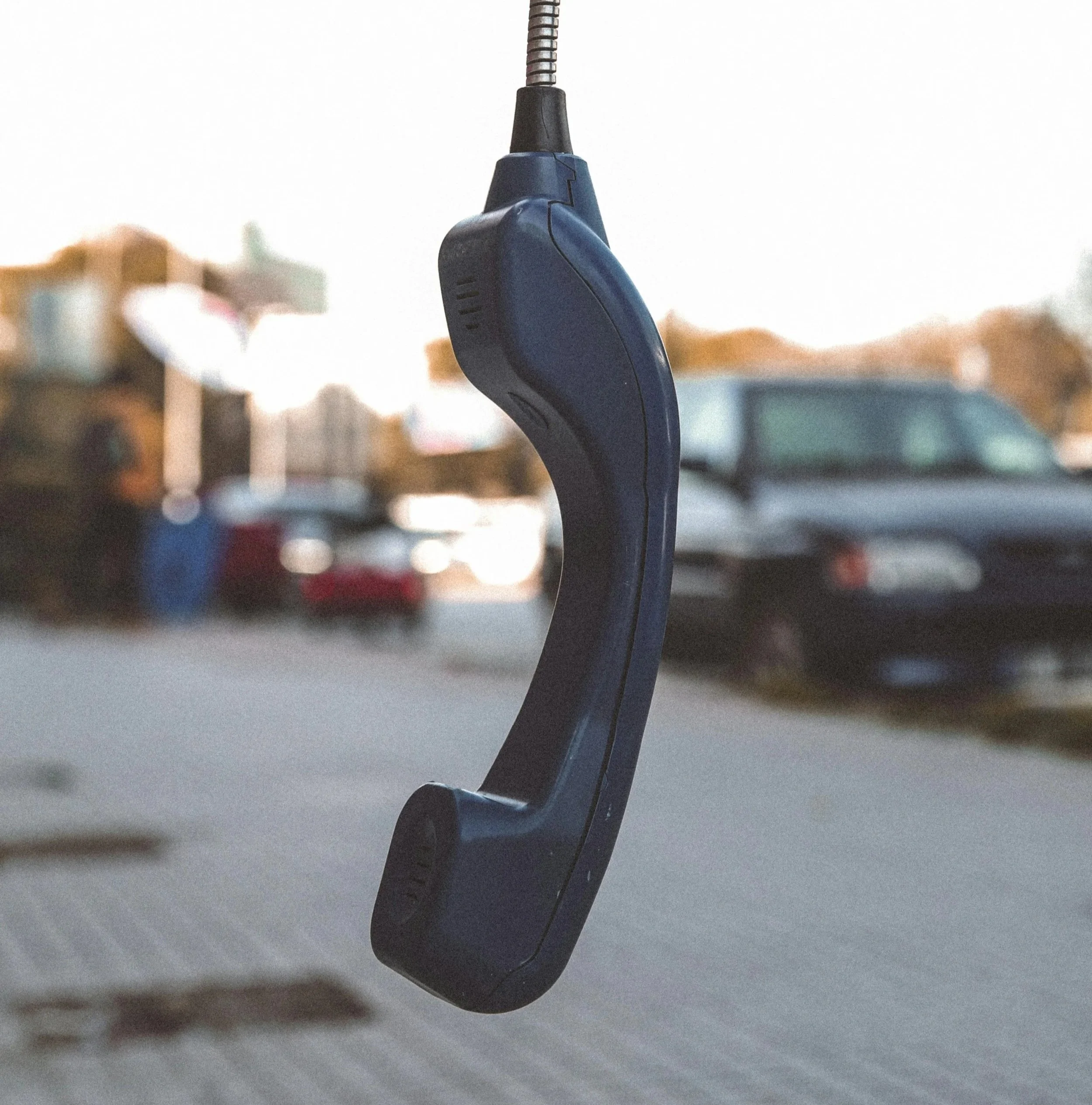Feeling Disconnected? Your Mind’s Trying To Tell You Something.
Image credit - Abdullah Toppinar, Pexels. Image shows a public telephone in a street, hanging by its cord.
Do you feel alone, even when you’re surrounded by people? Constantly connected but not really connecting with anyone.
Constantly scrolling through endless feeds can leave you feeling hollow. Life moves forward, but something inside feels distant, like you’re living slightly out of sync with yourself.
So why do we feel this way? Why are so many of us feeling disconnected?
Living in Survival Mode
When life feels fast, uncertain, or overwhelming, our nervous systems do what they’re designed to do, they shift into survival mode. We tighten, rush, overthink, overwork. Our breathing becomes shallow, our bodies tense, our minds become restless. In that state, the body isn’t interested in connection or creativity, it’s scanning for danger.
Over time, many of us start living as if stress were normal. We can’t sleep at night, and when we do, we wake up already braced for the day ahead. We move from task to task without ever really landing in the moment. And the cost is enormous. When we’re constantly in survival mode, we lose access to the softer states that make life meaningful — curiosity, empathy, rest, and joy.
Busyness starts to replace aliveness.
And slowly, we disconnect, not because we want to, but because our we’re too exhausted to do anything else.
We Learned Early to Disconnect from Emotion
Most of us didn’t grow up in cultures or families that modeled emotional safety. We were told things like “don’t cry,” “be strong,” “man up” or “calm down.” Maybe we learned that being sensitive was “too much,” or that showing pain made others uncomfortable.
So we adapted. We pushed emotions down. We became caretakers, performers, achievers, anything to stay accepted. But the cost of belonging was hiding our emotions.
By the time we reach adulthood, many of us can no longer name what we feel or need. We know how to fix, please, and perform, but not how to feel. When emotions are disconnected, authenticity becomes harder, and connection with others feels distant or confusing.
Productivity Is Valued Over Presence
Our culture celebrates doing. We are rewarded for being efficient, productive, and high-performing, not for being grounded, self-aware, or at peace.
Rest is often equated with laziness. Stillness feels uncomfortable. “Being busy” becomes a badge of worth.
But humans aren’t machines. When life becomes a constant stream of output, we begin to lose the very qualities that make us whole.
We stop asking what matters to me? What feels nourishing? What does my body need right now?
The result? Emptiness. Burnout. Life may look “successful,” but inside we’re running on fumes.
Technology Gives Us Contact Without Connection
We’re more digitally connected than any generation in history, yet rates of loneliness, anxiety, and depression are soaring.
Social media gives us the illusion of closeness. But it isn’t real. Our nervous systems know the difference between being seen and being witnessed.
Between scrolling and sharing.
We’re wired for social in person contact. Without that, even the busiest digital life can feel isolating. We compare ourselves instead of relating. We perform instead of express. We scroll to fill the silence, when what we crave is presence.
The Loss of Meaning and Grounding
When connection to self and others fades, connection to meaning often follows. Life starts to feel transactional, a list of tasks to complete and achievements to be made, rather than a lived experience.
Without a sense of belonging to something larger, community, nature, purpose, or spirituality, people lose their inner compass. We become adrift, asking quietly, what’s the point of all this?
This search for meaning isn’t a sign of weakness, it’s a sign of humanity.
It’s the soul’s way of saying something essential is missing.
What Disconnection Is Really Telling Us
Feeling disconnected isn’t failure. It’s a message. It’s time for a change.
It’s your body telling you that it’s tired of rushing.
It’s your emotions asking to be felt rather than managed.
It’s your heart wanting authentic contact. Not performance, not perfection, but presence.
Reconnection doesn’t happen overnight. It starts in small moments. Pausing to breathe and noticing how you feel. Reaching out to others with honesty about how you feel. Spending time in nature, allowing silence. Allowing yourself to be present again.
Disconnection is not who we are, it’s a symptom of how we’ve learned to survive.
Underneath it all, we are wired for connection, to ourselves, to each other, and to the life pulsing through us.
When we begin to slow down and listen, that natural connection starts to return. And in its wake, we rediscover what we were missing all along. A sense of belonging, aliveness, and wholeness.
